Surin Elephant Round-up Festival
Parade of Giants
2026/11/19 - 2026/11/21
Every November, the quiet town of Surin is enveloped in a vibrant spectacle of color, sound, and the commanding presence of more than 250 elephants. The Surin Elephant Festival is a grand celebration honoring the deep bond between the people of Isaan (residents of Thailand’s Northeast) and elephants. Ancient rituals blend with modern spectacle, offering an extraordinary experience where visitors can feel the history, power, and dignity of Thailand’s national animal. For those who want to immerse themselves in history, culture, and the awe of animals, Surin is the perfect destination.
This festival is held annually on the third weekend of November, centered around Surin city and Si Narong Stadium. Families, travelers, and animal lovers from across Thailand and the world gather to enjoy the world’s largest elephant parade, dazzling performances, and unique cultural experiences found nowhere else.
Main Attractions
The Grand Elephant Parade & Elephant Breakfast Buffet
At dawn, Surin’s main boulevard fills with around 300 elephants and their mahouts (elephant trainers), all adorned in colorful cloths and traditional paint. Children in handmade elephant hats and local officials join the procession, with the sounds of drums, trumpeting, and laughter filling the air. When the parade reaches the city center, the famous “Elephant Buffet” begins. Watermelons, pineapples, bananas, sugarcane, and more—over 50 tons of fruit and vegetables—are lined up along the street. The sight of elephants skillfully picking their favorite treats, sometimes swallowing whole watermelons, draws cheers from the crowd.
Elephant Skill Shows & Mock Battles
At the heart of the festival, Si Narong Stadium hosts elephant soccer matches, tug-of-war (sometimes against teams of 100 soldiers!), and even painting performances by elephants using their trunks. Historical reenactments recreate Ayutthaya-era battles, with elephants and performers in red and blue costumes enacting legendary clashes between the Siamese and Burmese armies. The thunder of charging elephants, the clash of wooden swords, and swirling dust send the excitement of the audience to its peak.
Light & Sound Show at Prasat Sikhoraphum
At dusk, the ancient Khmer-style temple Prasat Sikhoraphum is illuminated. Traditional dance, music, and elephant performances unfold against the backdrop of stone towers, with the air filled with incense and anticipation. The blend of music, storytelling, and dance weaves Surin’s history, allowing the audience to enjoy a magical evening under the stars.
Costumes and Decorations
Mahouts wear indigo-dyed shirts and checkered pha khao ma sashes, while parade participants don vibrant silk, gold ornaments, and elaborate headdresses. Elephants are draped in embroidered cloths, painted designs, and garlands of marigold and jasmine. Children add color with handmade elephant masks and paper costumes. The city is decorated with banners, and markets are filled with elephant-themed goods and crafts.
Stroll the Food Stalls: Experience the Flavors and Aromas of Isaan
Festival grounds are lined with sticky rice, spicy grilled chicken, som tam (green papaya salad), and fragrant noodle soups, their aromas mixing with the sweet scent of fruit from the elephant buffet. Street stalls offer coconut ice cream served in bamboo cups, skewers, and for the adventurous, crispy fried insects. Refreshing sugarcane juice and herbal teas help beat the heat, while coconut-flavored khanom krok (rice flour pancakes) melt in your mouth.
Cultural and Historical Background
The origins of the Surin Elephant Festival trace back to royal elephant hunts led by the Kui (or Khwe) people, the indigenous residents of Surin. The Kui are renowned as some of Thailand’s most skilled mahouts, having captured and trained elephants for generations. During the Ayutthaya era (14th–18th centuries), royal elephant hunts became important state ceremonies, eventually evolving into public spectacles. The Kui’s impressive skills and the harmony between humans and elephants fascinated royalty and foreign envoys alike.
However, from the mid-20th century, industrialization and social change rapidly reduced the economic role of elephants. Their work in logging and hunting disappeared, and the traditions of the Kui and mahouts faced crisis. In the 1960s, local authorities and tourism agencies reimagined the festival to preserve elephant culture and revitalize the region as a tourist attraction. Today, it’s Surin’s largest annual event, drawing visitors from around the world and supporting both the local economy and elephant conservation efforts.
For the people of Surin, elephants are more than just animals—they are family, lifelong partners, and symbols of strength, wisdom, and good fortune. Especially for the Kui, living with elephants is a source of pride and identity. During the festival, the sight of mahouts and elephants performing together, and children learning from these gentle giants, strengthens community bonds and passes on tradition across generations.
In recent years, growing awareness of elephant welfare and conservation has made the festival an educational platform for both locals and tourists. It’s a chance to reflect on the history of coexistence between humans and elephants, and to inspire future efforts to protect and cherish this unique relationship.
Participant Voices
“I came from Australia, having long dreamed of seeing the Surin Elephant Festival, and finally made it. The most memorable part was the elephant soccer—watching these giants push a huge ball toward the goal with their trunks was both hilarious and powerful. I talked with a local woman selling sticky rice and grilled chicken, who told me this is the busiest time of year for her family. The whole venue buzzed with energy, and I was deeply moved by the bond between Thai people and elephants.”
Fun Facts
- The elephant buffet serves over 50 tons of fruit and vegetables, making it the world’s largest breakfast for elephants.
- The Kui people of Surin have been renowned mahouts, training elephants for generations.
Festival Dates
The festival is held every year on the third weekend of November.
The event schedule is subject to change. Please check the official website for the most up-to-date information.
Media
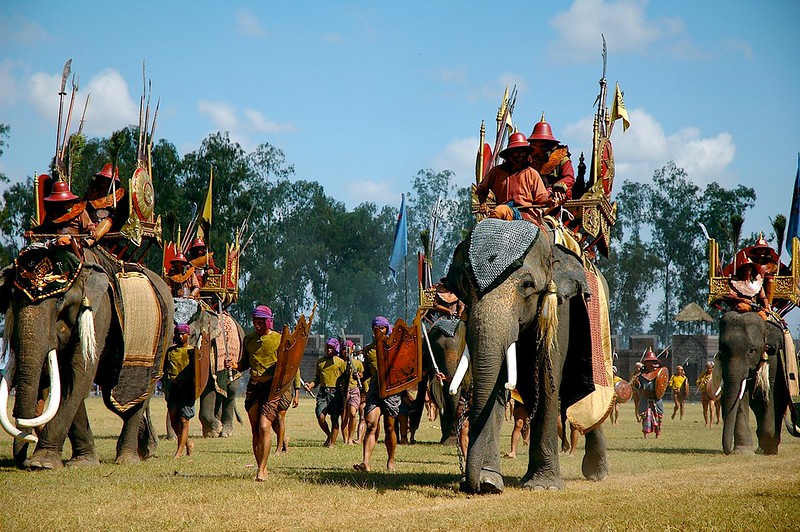
photo by Heather Connolly
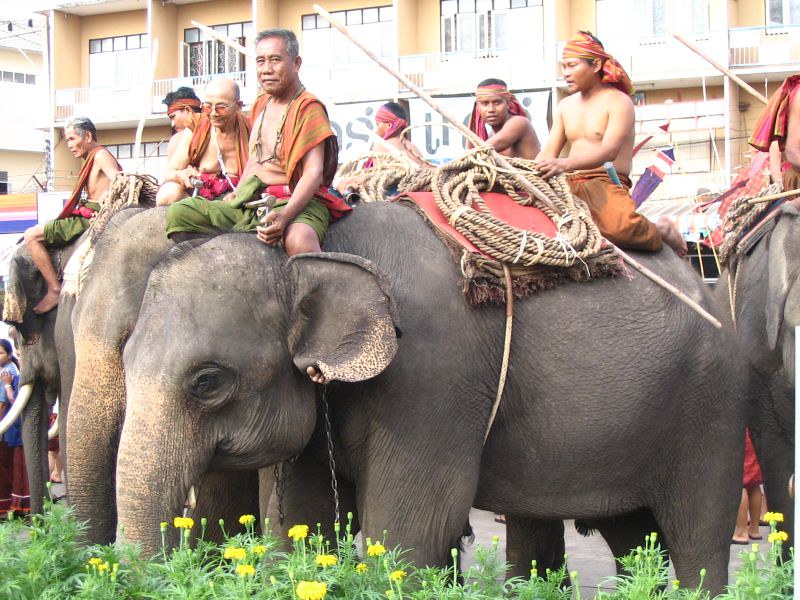
photo by Irit & Ophir Maor
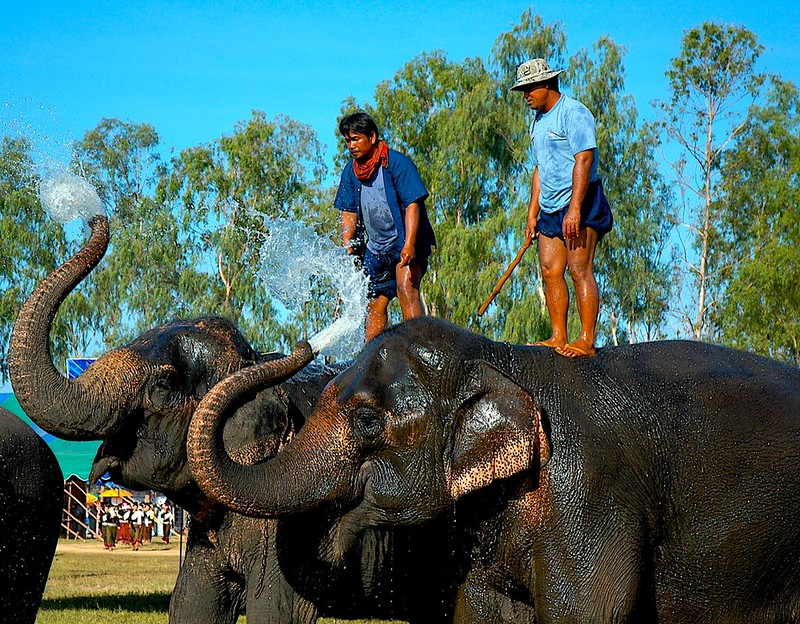
photo by Heather Connolly
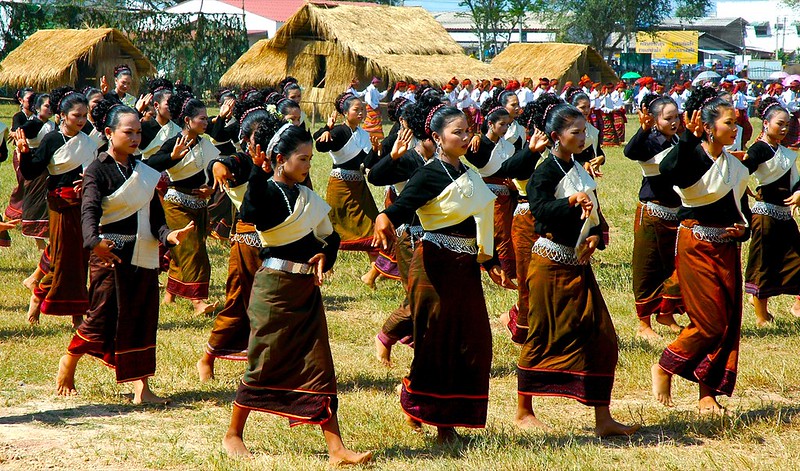
photo by Heather Connolly
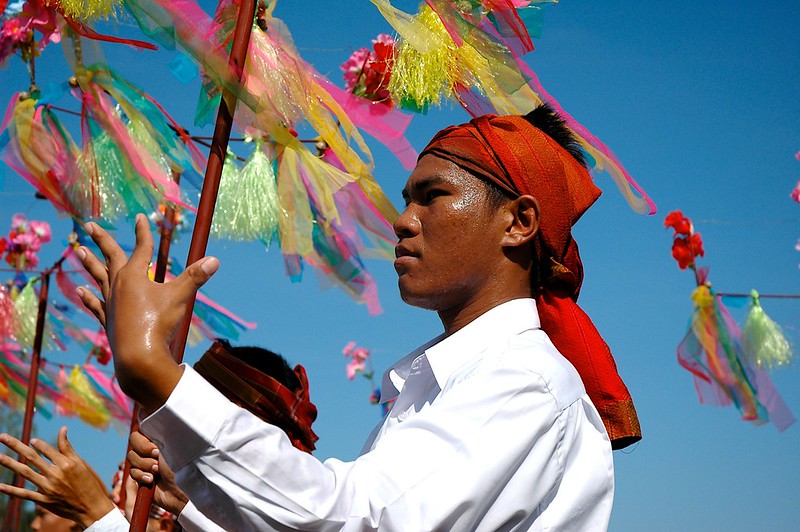
photo by Heather Connolly
Information
| Name | Surin Elephant Round-up Festival |
| Country | Thailand |
| Area | Surin |
| Date | 2026/11/19 - 2026/11/21 |
| Link |
Upcoming Festivals
Kukeri(Surva) Bulgaria
Bulgaria’s Festival of Spirits, Fire, and Bells That Drives Away Winter
2026/01/22Dinagyang Philippines
Iloilo’s Thunderous Festival of Faith, Tradition, and Dance
2026/01/22The Northern Lights Festival (Nordlysfestivalen) Norway
A Tromsø Miracle: Music and Aurora Dancing in the Arctic Night
2026/01/25Carnavales de Ituren y Zubieta Spain
Ancient Echoes and the Festival that Awakens Spring in the Basque Mountains
2026/01/26Up Helly Aa United Kingdom
A Night When Fire and Viking Pride Blaze in Shetland
2026/01/29Winterlude Canada
A Wonderland of Ice, Light, and Smiles in Canada’s Capital Region
2026/01/30Carnival of Viareggio (Carnevale de Viareggio) Italy
A Spectacular Parade of Giant Papier-Mâché Masterpieces
2026/01/30Fiesta de la Candelaria(Virgin of Candelaria) Peru
A Grand Dance Festival of Faith and Folklore Echoing on the Shores of Lake Titicaca
2026/01/31Thaipusam Malaysia
A Pilgrimage of Prayer and Penance Illuminates Batu Caves
2026/01/31Jaisalmer Desert Festival India
When Rajasthan’s Golden Dunes Dazzle with Color and Culture